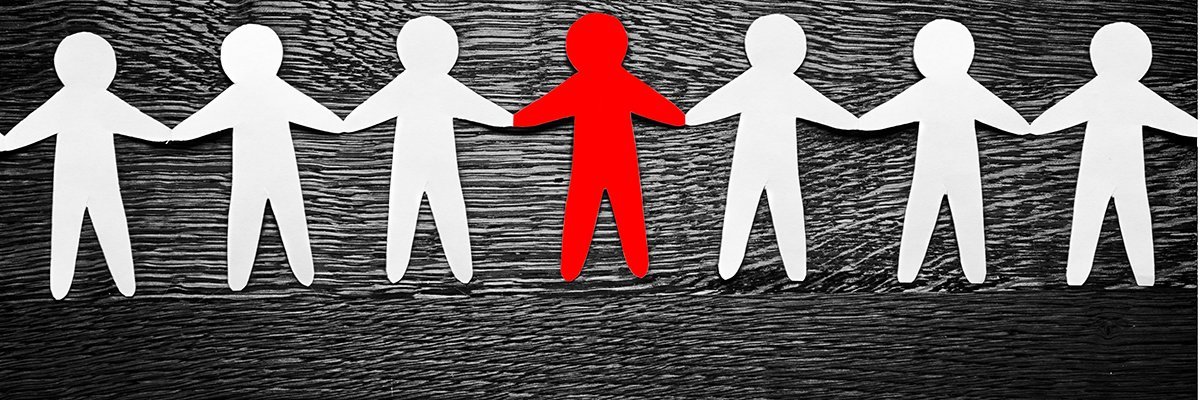
ashumskiy - Fotolia
CIO Symmetry
A proportional mix of news and wit for the midmarket.
Recent Posts
-

Intel's job cuts a sign of PC's metamorphosis; keeping cool during a cyberassault
22 Apr 2016 -

CISO reporting structure debate heats up; Congress assesses blockchain security
18 Mar 2016 -

SaaS shines amid low global IT spending; tips for your private cloud journey
22 Jan 2016
Intel just announced that it's cutting 12,000 jobs in a restructuring effort that shifts focus away from PCs and onto growing technologies like wearables and IoT. In this week's Searchlight, Site ...
Who should CISOs report to? That has been a longstanding question in the IT field, but, as cybersecurity rises to the tops of the business and IT priority ladders, it has taken a on new sense of ...
This Symmetry blog post rounds up all of the content published on SearchCIO and SearchCompliance this week.
-

FTC highlights unethical big data usage; IT pros share regrets and resolutions
15 Jan 2016 -

TechTarget's 2015 salary survey results; the difficulties of organizational agility
25 Nov 2015 -

The logistics of a 'bossless' workplace; dated security practices endanger companies
22 May 2015 -

IT systems integration key to multichannel retail; Samsung chips away at IoT market
15 May 2015 -

Target's need for industrialized IT; A lesson on digital leadership from the pros
24 Apr 2015 -

Facial recognition technology to be used by local law enforcement
- TechTarget 27 Aug 2012 -

London summer games CIO deploys piezoelectricity
- TechTarget 03 Aug 2012
This Symmetry blog post rounds up all of the content published on SearchCIO and SearchCompliance this week.
The results from TechTarget’s 2015 Annual IT Salary and Careers Survey are in! SearchCIO members broke down the numbers and got reactions from CIOs and IT executives: First, Editorial Director Sue ...
Imagine never having to report to a boss or supervisor again. Sounds great, right? Well, not all the employees at Zappos think so. The company's controversial new holacracy system enforces ...
Digitization is changing the way we shop, and making strong multichannel strategies a necessity for retailers. In this feature, experts discuss how they can adapt to the growing e-commerce market ...
Customer demand for Target's Lilly Pulitzer clothing line was so high that it overwhelmed the retail giant's website and mobile app. How could the company have avoided the snafu? Site Editor Fran ...
Can local law enforcement utilize facial recognition technology against images now visible with the new Facebook privacy settings? That's one question raised by this week's Best of the Web, where ...
TechTarget is a believer in fostering new talent in journalism. Welcome Miki Onwudinjo to the SearchCIO-Midmarket.com family as our new editorial assistant. CIOs are leaders in determining the ...
-

Leap second creates havoc for cloud computing services
- TechTarget 02 Jul 2012 -

Yammer does little to boost Microsoft's enterprise collaboration wares
- Editorial Director 26 Jun 2012 -

The role of the CIO is changing: What is your company doing about it?
- Editorial Director 12 Jun 2012 -

The Apple Retina display: Big whoop?
- TechTarget 11 Jun 2012 -

Corporate innovation: Why you're never going to win
- TechTarget 04 Jun 2012 -

COBIT 5.0 takes IT governance frameworks to next level
- Editorial Director 24 Apr 2012 -

Geek Squad move is a peek into the future of IT for SMBs
- TechTarget 03 Apr 2012 -

Renewable energy sources scarce, but there's plenty of energy to save
- Editorial Director 20 Mar 2012 -

The bad example set by the Britannica online edition
- TechTarget 16 Mar 2012 -

Are personal privacy violations just the cost of mobility?
- TechTarget 20 Feb 2012 -

CIOs learning to juggle business growth strategies with technology
- Editorial Director 14 Feb 2012 -

Shared services are the next generation of IT
- Editorial Director 31 Jan 2012 -

Google data center solutions to adapt in your own IT shop
- TechTarget 24 Jan 2012 -

Banks on Twitter? Don't bank on it
- Editorial Director 16 Jan 2012 -

Cloud security planning should be part of strategy from beginning
- Editorial Director 13 Dec 2011 -

Can you use the Kindle Fire for business?
- TechTarget 05 Dec 2011 -

Are you at risk? Huge Java vulnerability now weaponized and exploited
- TechTarget 02 Dec 2011 -

Tweak your corporate Twitter policy or risk getting p0wned
- TechTarget 14 Nov 2011 -

PCI DSS compliance may be the answer to more than credit card privacy
- Editorial Director 01 Nov 2011 -
How to be a strategic leader in the IT industry
- TechTarget 31 Oct 2011 -

Apple's Siri speaks to iPhone users, but what is the message?
- Editorial Director 25 Oct 2011 -

Gartner Symposium/ITxpo urges creative destruction
- TechTarget 20 Oct 2011 -

The fallout from the BlackBerry outage
- TechTarget 17 Oct 2011 -

What can we learn from the Steve Jobs Way?
- Editorial Director 11 Oct 2011 -

Be more effective by increasing your business storytelling
- TechTarget 10 Oct 2011 -

Strong passwords are more important than ever
- Editorial Director 04 Oct 2011 -

Whatever happened to last year's promising iPad clones?
- TechTarget 03 Oct 2011 -

Rooftop solar panels look to be a sound green investment
- Editorial Director 30 Aug 2011 -

Death to the HP TouchPad tablets! Long live the king!
- TechTarget 22 Aug 2011 -

How the Google acquisition of Motorola affects your mobile workforce
- TechTarget 16 Aug 2011 -

Does your Internet usage policy make your employees cry?
- TechTarget 29 Jul 2011 -

IT transformation means one thing: New IT job skills needed
- Editorial Director 26 Jul 2011 -

IPad Bluetooth keyboards, iPad’s own keyboard vulnerable to hackers
- TechTarget 18 Jul 2011 -

What chief information officers have in common with Kevin Bacon
- Editorial Director 12 Jul 2011 -

Can the new Google social network overtake Facebook?
- TechTarget 08 Jul 2011 -

Even the Geek Doctor couldn't save Google Health
- Editorial Director 28 Jun 2011 -

Vulnerability in Dropbox security leaves user accounts wide open
- TechTarget 24 Jun 2011 -

Public-sector CIOs leading IT transformation
- Editorial Director 16 Jun 2011 -

TrueCrypt and Dropbox go together like peanut butter and chocolate
- TechTarget 13 Jun 2011 -

Outsourcing services need the right mix of commodity and strategy
- Editorial Director 07 Jun 2011 -

Failed promotion for Amazon cloud storage affects consumer confidence
- TechTarget 24 May 2011 -

CIO innovation is about getting ahead of the problems
- Editorial Director 03 May 2011 -

PlayStation Network breach is Sony's shameful nadir
- Editorial Director 28 Apr 2011 -

Cisco killed the Flip camera and other surprises
- Editorial Director 19 Apr 2011 -

What have we learned from the Epsilon security breach?
- Editorial Director 12 Apr 2011 -

Are the Mozilla Firefox 4 and IE9 releases wreaking havoc on your old apps?
- TechTarget 05 Apr 2011 -

Why aren't more women in executive careers in IT?
- TechTarget 11 Mar 2011 -

What would an Internet kill switch really mean?
- Editorial Director 01 Mar 2011 -

Effects of the Egypt Internet shutdown
- Editorial Director 10 Feb 2011 -

Software tools can be basis for successful ITIL strategy
- Editorial Director 08 Feb 2011 -

IT innovation is just a matter of time
- Editorial Director 01 Feb 2011 -

Data center transformation: Evolution or revolution?
- Editorial Director 13 Jan 2011 -

CIO resumes: Passing the eyeball test and the black ink test
- Editorial Director 07 Jan 2011 -

Forget virtual machine management -- go to the cloud
16 Dec 2010 -

How do you know if your SaaS provider is healthy? Here's the scoop
- Industry Editor -- CIO/IT Strategy 02 Dec 2010 -

Agile adoption basics, and basic mistakes
28 Oct 2010 -

Mobile workforce will soon demand iPad-type tablets
- Editorial Director 12 Oct 2010 -

Social media may not be a revolution, but it's in your enterprise
- Editorial Director 05 Oct 2010 -

Supporting cloud services is a quandary for IT
16 Sep 2010 -

Improving business services management, one vehicle at a time
- Editorial Director 07 Sep 2010 -

Trade promotion management: A missing opportunity?
- Editorial Director 24 Aug 2010 -

Top five free Microsoft downloads
11 Aug 2010 -

The end of online anonymity, part 2
- Editorial Director 10 Aug 2010 -

Agile best practices applied to business problems
05 Aug 2010 -

IT consolidation for business innovation
14 Jul 2010 -

New England GiveCamp: One NERD and multiple IT project success stories
- TechTarget 17 Jun 2010 -

When it comes to an agile model, failure is an option
10 Jun 2010 -

More colleges move to cloud email like Gmail, ditch in-house email
- TechTarget 15 Apr 2010 -

Gaga for Google Fiber? We're all a bit crazy when it comes to tech
- TechTarget 25 Mar 2010 -

Top IT certifications: Do they matter to you?
- TechTarget 18 Mar 2010 -

Why one IT guy found Windows 7 to be too user-friendly
- TechTarget 11 Mar 2010 -

Paying the price for server uptime
- Editor 11 Dec 2009 -

What is transparency, and how can Agile practices help?
- Editor 13 Nov 2009 -

The challenge of managing risk when IT budgets tighten
- Industry Editor -- CIO/IT Strategy 09 Oct 2009 -

Beware of rising server room temperatures
- Editor 21 Aug 2009 -

With PPM software, don't always throw in the kitchen sink
- TechTarget 17 Jul 2009 -

Five key questions about cloud computing
12 Jun 2009 -

Don't be like GM: How a BPM strategy can help you avoid bankruptcy
- TechTarget 02 Jun 2009 -

Is cloud computing a platform or a stage?
- Senior Vice President of Editorial 16 Apr 2009 -

Qualities of a good leader: Avoid layoffs at all cost?
- TechTarget 20 Feb 2009 -

The Super Bowl and server virtualization: Don’t drop the ball!
- TechTarget 30 Jan 2009 -

Vendor gifts: Holiday cheer or ethical dilemma?
- TechTarget 19 Dec 2008 -

Recent FBI vishing scam warning an old issue
- TechTarget 09 Dec 2008 -

The Web 2.0/social media revolution inches along
- TechTarget 14 Nov 2008 -

Google Chrome: How secure is your information?
- TechTarget 06 Nov 2008 -

Gmail apps: Text your contacts
- TechTarget 31 Oct 2008 -

Don't ignore internal security (and don't write passwords on Post-it's)
- TechTarget 05 Sep 2008 -

Joe Biden: RIAA stooge
26 Aug 2008 -

Seinfeld vs. Justin Long? Please, let's get someone with some funny.
21 Aug 2008 -

Save the data! How safe is our personal information?
- TechTarget 08 Aug 2008
Did the "leap second" get you down this weekend? Did the Amazon cloud computing services outage prevent you from watching old episodes of Louie on your iPad’s Netflix app? Us too. Between all of ...
So, with its $1.2 billion acquisition of Yammer, Microsoft confirms its desire to become a player in "enterprise social." My question is, since when was the company not all about enterprise ...
I am going through the data from the second annual SearchCIO.com Role of the CIO survey. So far, the data suggests more skewing toward business transformation and innovation and away from ...
Each week, we round up an executive summary of the high points around the blogosphere. This week, we're taking a look at the legality of Internet traffic regulation and how the big Internet ...
We scoured last week's blogs for the best and brightest blog posts and media on topics of interest to midmarket CIOs. This week we're examining the problems that plague midsize corporations, like ...
It's one thing to get excited about new releases of Windows, iPhones or even HTML. It's another to get jacked and pumped about IT governance frameworks. But in the case of COBIT 5.0, you should. ...
Consumer electronics retailer Best Buy announced recently that it is extending its Geek Squad computer help services to small businesses and other partners. In its own way, this move says a lot ...
This wasn't a new story, but it was to me. So, I was a little disappointed to read about the dangers of wind power. Dangers? From a clean, renewable energy source? Yes, the magnets used to build ...
This week, the Encyclopaedia Britannica announced that its most recent print run would be its last, ending a 244-year run of printing out giant tomes. The $1,395 print-bound sets were swooped up by ...
Each week, we scour the Web and bring you the most tantalizing tidbits that hit our radar. This week, we're looking at the nasty reality of personal privacy violations, the price of insider trading ...
You start spending enough time around CIOs and you can really feel the changes swirling around them. On the one hand, CIOs and senior IT executives must drive business growth strategies through ...
Last week I wrote about the transformation of banking services into products. This week I want to discuss different types of services--shared services. One of the first technology news stories I ...
Each week, we scour the World Wide Web to give you a quick punch of last week's biggest news stories and interesting blog posts. This week, we're taking a look at whether computer science should be ...
Recently, I was with my son to open an account at the local branch of my once mighty but now struggling Mega Bank. The customer service rep ran through the "product" options we had for creating his ...
What are you doing about cloud security planning? I say planning because, in a survey of attendees at the recent SearchCompliance.com Making the Case for the Cloud virtual seminar, more than ...
Each week, we mine the Web for the jewels of knowledge that appeal to CIOs. This week, we're looking at the trend of using the Kindle Fire in business, what compels women to quit their IT teams and ...
It's every CIO's worst nightmare -- that panicked call when you least expect it, delivering the worst possible news: "The firewall has been breached." We know that you do everything possible to ...
Each week we scour the Web and bring you the freshest scoop from around the blogosphere. This week, we're serving up tasty helpings of corporate Twitter intellectual property questions, IT ...
The Payment Card Industry Data Security Standard -- PCI DSS -- has been around for a few years and has seemingly done a good job of keeping credit card data safe. No, it's not a binding regulation, ...
What happened in the IT world last week? Here's the scoop on what you might have missed, including how IBM set an example for strategic leadership, Hewlett-Packard Co.'s recent decision and cloud ...
Full disclosure: I've been an iPhone user since 2008 and I just bought my second iPad. So, I'm not bashing Apple products, and I'm not bashing iPhone users or users of Apple products in general. ...
Creative destruction. I've heard that term a lot this year, although it's hardly a new concept. From what's happening with the Occupy Wall Street madness to the pressure to innovate in the IT ...
Here's what you may have missed last week while you were standing in line to get your new iPhone 4S or waiting for your email during the cataclysmic BlackBerry outage: • As anyone with a ...
There have been many timelines, retrospectives and other examinations of Apple founder Steve Jobs' career, aka the Steve Jobs Way, and it would be a waste if we don't learn lessons from him about ...
It's been a busy week around the Web, and chances are you missed some things. Between the news of the iPhone 4S and Steve Jobs' death, it seems like the Web was absolutely sticky with Apple juice ...
I recently asked one of my sons for passwords to his online accounts, for gaming, email, etc. Not because I'm nosy but because I'm trying to be a responsible parent and home IT administrator, and ...
Things getting hectic as you enter Q4? It seems like no matter what you do, you still just keep feeling like you're two steps behind. We know how it feels, and we're here to make it better. We've ...
Rooftop solar panels are finally turning on a light bulb over some business leaders' heads. A big office park in my town is putting up solar panels on the roofs of two parking garages on its ...
It's been a busy week in tech, with the demise of WebOS on everyone's lips and the inevitable budget crunch as we prepare for 2012. Never fear: We've scoured the Web so you don't have to! Here's a ...
It's been a busy week in tech. Google's acquisition of Motorola has everyone wondering how it will affect their mobile workforce. Here's a tasting menu of the choicest bits around the Web, ...
How are you feeling today? Lonely? Upset? Vaguely withdrawn from society? If so, quick -- check your Twitter stream on your smartphone. Better now? We've all heard BlackBerry jokingly referred to ...
I found it amusing/disturbing during the NFL player lockout that players were worried about making ends meet. Many players should certainly learn new job skills for when their playing days end, but ...
Were you on vacation and unplugged last week? While you're planning your shopping list for the week, you might want to add an iPad Bluetooth keyboard and a 20-foot touch-screen wall. Here's what ...
What does a chief information officer have in common with Kevin Bacon? Mathematics. The Six Degrees of Kevin Bacon Game has been around for a while. It proves that all of us are more intertwined ...
Facebook and Google have been at war for years. They want your eyes on their sites, and they'll do anything toward that goal. You've undoubtedly heard about the potential new heir to the Facebook ...
My first thought when I heard that Google Health is shutting down is, "what's the Geek Doctor going to do?" My second thought was shock. Dr. John Halamka, aka the "Geek Doctor," has been one of ...
No bones about it: Dropbox security just took a huge dive in user confidence. This past Sunday, Dropbox user accounts -- all of them -- were open and accessible to the world, no password required. ...
I'm not sure about you, but my first impression of government's use of technology is that they are still working off VAX computers and dumb terminals. But, really, it's quite the contrary. Here are ...
We've scoured the Web and compiled a crib sheet for the best and most interesting tidbits from around the IT blogosphere last week, including using TrueCrypt and Dropbox for data encryption, the ...
Discover Card has made a celebrity out of "Peggy," but despite the credit card provider's efforts to humorously discredit outsourcing services in former Soviet Bloc countries, Ukraine is seeing ...
It's one of those things that looks fantastic on paper: Introduce your cloud service to the consumer market by packaging it with a super-cheap, eagerly anticipated superstar's new album. Amazon did ...
My colleagues and I in the CIO/IT Strategy Media Group have spent much of the first half of 2011 talking with CIOs about innovation. So much time that I think I might go crazy asking another ...
Another week, another major hack. It seems these things go in cycles. There was a major breach at email provider Epsilon earlier this month. But the recent attack on the PlayStation Network is ...
The news last week that Cisco killed the Flip mini-camcorder -- or, as Cisco put it, restructured its consumer products division -- is full of surprises. First, I have to admit, even as a Cisco ...
My wife and I started getting the emails April 4. Best Buy. Our bank. Other e-commerce sites we had shopped. The impact of the Epsilon security breach was far and wide. My first thought was that at ...
Microsoft Internet Explorer 9 and Mozilla Firefox 4 dropped within a week of each other, and now that the dust has settled, Internet users are finding that there are pieces of their daily lives ...
Tuesday was International Women's Day. The United Nations' theme for 2011: "Equal access to education, training and science and technology." Last week at the FusionCIO conference in Madison, Wis., ...
The Internet shutdown in Eqypt last month raised questions regarding whether the U.S. would be able to do the same with a so-called Internet kill switch bill. This is not the first time such a bill ...
It's a sign of how dependent our lives have become on the Internet, or more accurately, of "being connected." News of Egypt cutting off Internet and cellular service for five days this week shocked ...
The IT Infrastructure Library (ITIL) can be a useful tool -- for those who have ventured into it. Just 40% of 169 IT managers at midmarket firms surveyed by SearchCIO-Midmarket.com last year ...
Innovation is a popular topic among IT professionals and media. It's also one of the more misunderstood concepts. If you ask 10 CIOs what IT innovation means to them or to their companies, you will ...
As we continue to chronicle the "disappearing" data center, we have to consider the ongoing transformation of the enterprise application. Software as a Service, Web-based applications, cloud ...
Judging character and qualifications is a tough thing. The annual debate over the Major League Baseball Hall of Fame voting is going on, following the announcement of the two newest members, ...
There are still many IT shops that have not virtualized the majority of their servers. Many still haven’t moved virtual machines (VMs) to a production environment yet. In fact, some may sidestep ...
How do you know if your SaaS provider is a good choice? A session at the recent MIT Sloan CFO Summit provided some insight that might prove useful the next time you're vetting a SaaS provider. The ...
I came across a helpful post on the Edge of Chaos/Agile development blog on the 10 most common mistakes for agile adoption. No. 1: Don’t start with a tool. Choosing a tool will only slow down agile ...
If ever there was a no-brainer reason to get an iPad, or some kind of equivalent thin tablet computer that will be coming soon from HP or Dell, it's as a journalist covering a remote assignment. ...
The social media multiverse is all a Twitter about the fact that one of today's most popular intellectuals has written an article saying that the revolution will not be tweeted. You should read his ...
A CIO was recently approached by a business line manager about a problem with a cloud service. The manager asked if the CIO could help resolve the issue, and the CIO gave him a flat-out “No.” It is ...
It's funny the places where you can gain some insight about business services management. Last week, I spent two hours waiting at my local Massachusetts Registry of Motor Vehicles to exchange a ...
If you read Linda Tucci's recent story on the efforts of Tasty Baking Co. to find a workable solution for trade promotion management, you may have been struck, as I was, about why TPM can be such a ...
Every once in a while I like to check out what Microsoft admins are downloading these days. I sometimes do a search on Google, but to get a feel for the work being done in Microsoft shops, I always ...
Google CEO Eric Schmidt's statement last week about the end of online anonymity recalls similar words by one of his former colleagues, Scott McNealy of Sun, more than a decade ago. McNealy caused a ...
In the past few years, Ross Pettit, client principal at Chicago-based ThoughtWorks Inc., has seen a shift in client requests. The agile software development consulting firm’s projects are still ...
I’ve been touching base with IT folks and analysts lately to get a feel for the projects people are working on these days, and the phrases that keep coming up are IT consolidation, modernization ...
A lot of projects fail. If business requirements aren't clear or gathered effectively, or if the scope of the project is inaccurate, failure happens. But this past weekend, at New England GiveCamp ...
It’s OK to fail when taking an agile approach to a business service or software development project, but if you fail, fail fast. As one expert explained to me, if you don’t fail, you don’t really ...
Colleges across the country have started turning to cloud email services such as Gmail in an effort to cut costs. It's not entirely surprising, either: IT shops have been toying with the idea of ...
The Google Fiber for communities deadline is right around the corner. In an effort to test out its plans for high-speed broadband and fiber-to-the-home connections, Google has asked interested ...
How important are IT certifications today? As organizations start to hire again (there were 58,229 available tech jobs on Dice.com this month), IT certifications could help potential candidates ...
There has been a lot of Windows 7 coverage on SearchCIO-Midmarket.com -- everything from planning your migration strategy to making it your last operating system. Part of the appeal of the new OS ...
What’s the price for server uptime? How much would you be willing to invest to maintain five 9s of availability on your mission-critical line of business applications? With limited budgets and ...
As I was interviewing experts and practitioners this week on the uses of Agile practices, the term transparency kept popping up in comments about the benefits of using this type of software ...
I see an interesting sea change when it comes to risk: Thanks to the recession, as IT risk management is constrained by tightening IT budgets, the risk of doing business goes up. As part of my ...
When you’re cranking the A/C during these final hot days of summer, don’t forget about data center cooling as well. The consequences for not monitoring server room temperatures could burn you well ...
Project and portfolio management (PPM) software is definitely not overlooked in the midmarket. According to a recent SearchCIO-Midmarket.com survey, 17% use some form of PPM software. But how many ...
It seems every time I ask someone what they think about cloud computing, I’m asked five or more questions in return: Isn’t what cloud providers offer pretty cookie cutter? Translate that as, “They ...
Midmarket CIOs who think of a business process management (BPM) strategy in its basic form as a tool for putting processes around purchase orders, claims or employee onboarding and offboarding ...
Cloud computing is at that early stage where there’s much discussion of taxonomy: Is it infrastructure? Is it Software as a Service? Is it a platform? All well and good, but little discussed so far ...
An article on our sister site, SearchCIO.com, this week highlighted the qualities of a good leader during a recession, culling advice from leadership experts and CIOs. The list includes qualities ...
Are you ready for some server virtualization? This year, the Super Bowl will be running on one of IBM's smallest systems, the BladeCenter S. The system will support security and credentialing for ...
Twas the night before deadline and all through the office, we worked with our heads down, appeasing our bosses. But what to my weary eyes should appear? The USPS delivery, bringing vendor-purchased ...
Last Friday, the FBI issued a warning about a security vulnerability that could be used by cybercriminals to make vishing telephone scams. Vishing (combining phishing and voice) uses Voice over IP ...
More evidence this week that the Web 2.0/social media revolution may be advancing, but it ain’t here yet: Instant messaging hasn’t become the preferred method of communication among IT staff; nor ...
Google is growing. From Chrome to G1, it’s not just for searching anymore. As the Google giant is creating new breeds of consumers (“cross-consumers,” I call them -- spanning email, news, mobile ...
Google Gmail users now have the option to send text messages to mobile phones. The experimental app, found in Gmail Labs, was made available to all users Thursday night. The feature is very similar ...
Last year 8% of the IT budget went towards security. This year? 10%. Khalid Kark, principal analyst at Forrester Research, Inc., presented security statistics at Forrester’s Security Forum 2008. ...
Joe Biden, huh? Talk about strike three. 2000: Democratic vice-presidential nominee Joe Lieberman “loses” election. Flash forward to 2008 and this stuffy jerk – who spent part of his career going ...
Can we all agree that Jerry Seinfeld was never the funny one? For all his quirks and humorous relationships, Jerry was always the straight man to his consistently hilarious compatriots. Good at ...
The search for the missing Registered Traveler laptop is finally over. The laptop, belonging to Verified Identity Pass Inc.(VIP), was reported missing from a locked office in the San Francisco ...
